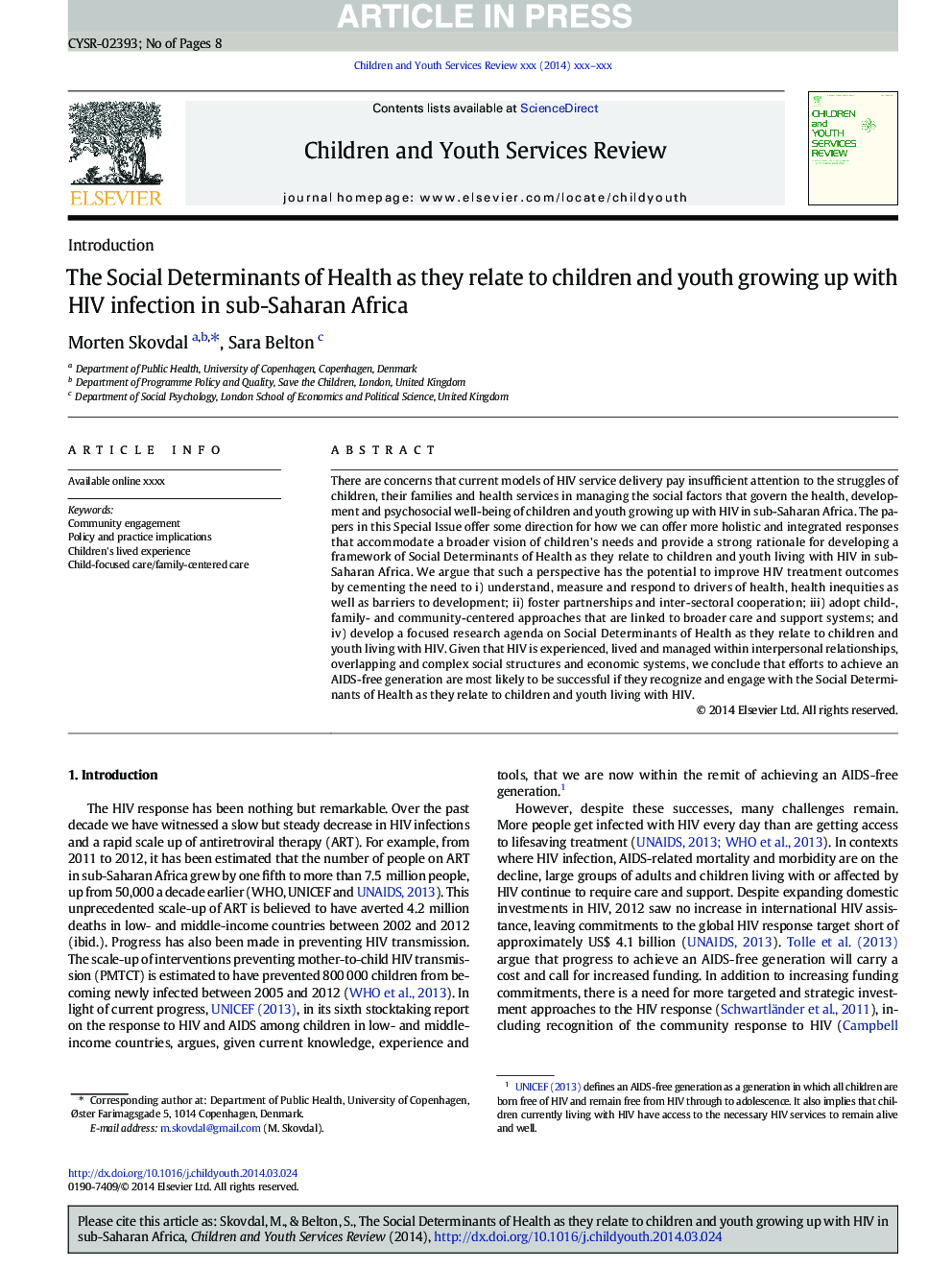| Article ID | Journal | Published Year | Pages | File Type |
|---|---|---|---|---|
| 6834140 | Children and Youth Services Review | 2014 | 8 Pages |
Abstract
There are concerns that current models of HIV service delivery pay insufficient attention to the struggles of children, their families and health services in managing the social factors that govern the health, development and psychosocial well-being of children and youth growing up with HIV in sub-Saharan Africa. The papers in this Special Issue offer some direction for how we can offer more holistic and integrated responses that accommodate a broader vision of children's needs and provide a strong rationale for developing a framework of Social Determinants of Health as they relate to children and youth living with HIV in sub-Saharan Africa. We argue that such a perspective has the potential to improve HIV treatment outcomes by cementing the need to i) understand, measure and respond to drivers of health, health inequities as well as barriers to development; ii) foster partnerships and inter-sectoral cooperation; iii) adopt child-, family- and community-centered approaches that are linked to broader care and support systems; and iv) develop a focused research agenda on Social Determinants of Health as they relate to children and youth living with HIV. Given that HIV is experienced, lived and managed within interpersonal relationships, overlapping and complex social structures and economic systems, we conclude that efforts to achieve an AIDS-free generation are most likely to be successful if they recognize and engage with the Social Determinants of Health as they relate to children and youth living with HIV.
Keywords
Related Topics
Health Sciences
Medicine and Dentistry
Perinatology, Pediatrics and Child Health
Authors
Morten Skovdal, Sara Belton,
